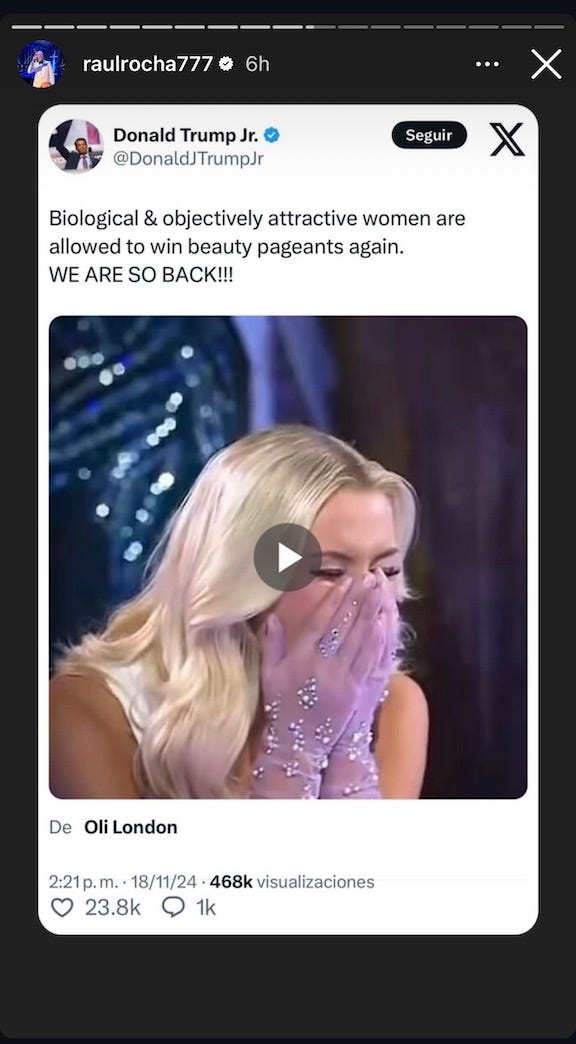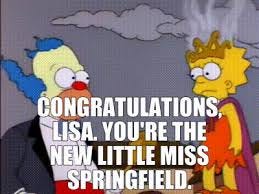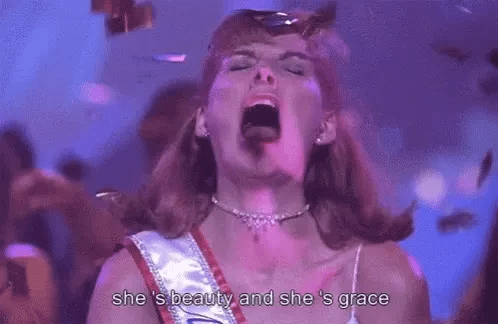Miss Universe: Where Ugly Is Exiled
Pageants leaders claim they’re breaking barriers, all while clinging to the same narrow definition of beauty and running from anything deemed 'ugly'.
Remember earlier this year when the Miss Universe Organization (MUO) proudly claimed to have removed all barriers to entry, and I couldn’t help but laugh at the obvious deception? Great, just making sure we’re all on the same page.
It’s been over a week since Victoria Kjær Theilvig of Denmark made history as the first Danish woman to win the Miss Universe crown. Apparently, though, the more "important" fact is that she’s the first blonde contestant in two decades to be crowned the “beauty ruler of the universe.”
Victoria stood out to me throughout the whole competition. There’s no question she was prepared and deserving of the crown. But it’s a shame that her reign has already been overshadowed by an obsession with her skin and eye color, which has completely derailed the conversation from her platform (which, by the way, is allegedly animal rights??) and shifted it to how she’s the "fairest and thinnest” of them all… literally.
After the crowning, Donald Trump Jr. tweeted this:
The tweet was subsequently shared by Anne Jakrajutatip, the owner of the Miss Universe Organization (MUO)—a trans businesswoman—and Raul Rocha, the co-owner of MUO, a clear nod in agreement with the statement. Elon Musk also had something to say, tweeting:
"Breaking, internet stunned after an attractive biological female human of healthy weight wins Miss Universe pageant."
Now, I’m a little confused because, in my 13 years of following Miss Universe, I’ve never seen an unattractive, plus-size, or non-biological woman even come close to winning the crown. And by "close," I mean the Top 5. So what the hell are these people talking about? Who is “ugly”? Who are they referring to? They clearly have someone in mind, and I’m genuinely curious who that person is. Here’s a picture of the winners from 2011 to 2022…again, I ask, who here is unattractive, of an unhealthy weight, and a non-biological woman?
The posts shared by the organization’s leaders give off an unmistakable vibe of: "Everything we said earlier this year about opening the competition to all women? A farce." We all know Anne isn’t genuine. She’s on tape saying: “Trans women, women with husbands… they can compete, but they cannot win.” She doesn't want diversity and inclusion, she only wants your money and media attention. Usually, I try to write with a little more intellectual composure, but today? I can’t be bothered. This organization is bullshit. It’s bullshit now, and it was bullshit when I competed.
I’ve pissed off a lot of people with my blunt criticism of pageants, and that’s fine—I’m still gonna speak my mind. I remember attending my first Miss California USA orientation back in 2013. The male state director, who I’m pretty sure got booted for being creepy with contestants (absolutely shocking, I know) stood on stage and proudly said, "It’s not about being the most beautiful; it’s about who you are and what you stand for." This is what initially drew me to pageants.
Pageants were supposed to be different from the modeling industry. A place where driven women could find a platform and rise to new heights thanks to the organization's prestige. Yet, strangely, the stage on finals night was filled with mostly models. Back in 2013, when I didn’t place and had no fecking clue what I was doing, I left feeling crushed. Coming from a horseback-riding, muck-boots background, the world of hair extensions and butt glue completely overwhelmed me. It took years, but I eventually learned all the tricks—the twirls, the smiles, the “look like you’re having the best day of your life” vibes it took to get noticed.
When I competed at Miss CA USA in 2015, after winning a smaller local pageant, I was a completely different person than I had been two years earlier. I was deeply tanned, had large curled hair extensions, wore a custom gown, and my makeup was flawless, thanks to training with one of the best artists on the West Coast. I also had an amazing headshot, which boosted me to the top of many “pageant picks” lists. Contestants frequently approached me to compliment my photo and tell me they expected me to place highly, all thanks to the circulation of this heavily edited picture. I thought I knew exactly what the judges were looking for. But despite all of this, I didn’t place.
Afterward, when I spoke with the state director, she told me I was #21—just one spot shy of the Top 20. Her feedback? “Don’t wear white heels in the interview, wear a nude instead.” That was it. Seriously. I was so frustrated because I still had no idea what the judges were actually looking for. Over time, I realized they’d never truly be transparent about it.
The thing about competing in Southern California is that there are (or were) dozens of preliminary pageants. If you win one, it sends you straight to the state competition. After closely following state and national title winners, it was easy to predict who would leave with the crown and just as clear who wouldn't. No matter how polished their speaking skills or how impressive their résumés, if their image didn’t match what the judges were looking for, they weren’t getting that shiny new accessory. The winners looked like the women in the magazines. The others… didn’t. Consistently, I saw the same contestants returning to local and state pageants, desperate for a title. Encouraged by directors and coaches, they kept competing, hoping for a win. But they never did—and they never would. Not in the Miss Universe system.
This brings me back to the whole Elon, Trump Jr., and Anne debacle. Unattractive women rarely hear their names called during the winning moment of a beauty pageant, though their money is always accepted. They fund the industry. However, year after year, the titleholder remains thin, conventionally beautiful, often tall, and compliant with the ‘ideal’ image. Directors intentionally mislead contestants with false promises, fully aware that the winner must meet a genetically specific look.
Honestly, it’s downright heartbreaking to watch. My anger and frustration toward this so-called “pageant beauty” standard come from the fact that I entered the system without it. I was the ugly friend in high school—awkward, invisible to most, and always on the outside. But after obsessively studying beauty and presentation, I eventually did what every pageant girl dreams of: I competed at Miss USA, the "Super Bowl" of pageantry. And yet, in the process, my spirit died a thousand little deaths.
Each time I glued fake lashes to my hooded eyes. Each time a makeup artist criticized my acne or my thin hair. Each time my state director gossiped about another titleholder. Each time I forced myself to suppress my true personality, carefully crafting my interview answers, praying the judges might find my "uniqueness" just tolerable enough to be seen as worthy. Every time I pushed myself to promote a beauty product or service I didn’t believe in. All of it, just to fit into a system where the women who won mattered—and I desperately wanted to matter too.
When I walked into the orientation room of the Miss Montana USA 2020 pageant, I looked around at the room and knew I’d win. A fellow contestant who became a good friend later told me, “When you walked into the room, I knew you were the winner.” I had finally left ugly behind. I mattered.
This makes me ask: Why was I so afraid of ugliness? Why are we all so terrified of it? It’s like a taboo or a curse word. Why is ‘ugly’ so demonized? Some might argue that there’s no such thing as 'ugly'—that everyone is beautiful in their own way. Sure, fine. But that’s not the foundation of a titleholder. MUO claims to advocate for diversity, but can there be broad inclusivity in an inherently exclusive event? Would anyone watch if beautiful women weren’t strutting around in bikinis and high heels? Is anyone watching now? Well, apparently, Donald Trump Jr. and Elon Musk are.
The Miss Universe Organization has suffered in light of its ethical inconsistencies. It’s been drowning for years. At least back when Trump owned it, they were honest about their devotion to choosing the ‘most beautiful’ titleholders. No one had the slightest chance of beating out Olivia Culpo in 2012. As IMG/WME took over leadership, ousting the old image, they steered the ship toward a new kind of titleholder. Gone were the days of Fadil and the Las Vegas glamour, and in glided scientists, lawyers, and Army veterans. The new titleholders fell victim to a slew of hate and criticism for the new path they were paving. But while their resumes looked entirely different from the previous winners, one thing remained the same. They consistently were thin and beautiful. Anyone who claims "beauty had left Miss Universe or Miss USA" isn’t paying attention, and let’s be honest, is coming from a place of prejudice.
The Miss Universe Organization has always sold—and will continue to sell—beauty. No matter how much they claim to be progressive, inclusive, or diverse, the pageant remains fixated on one thing: a very specific, narrow standard of beauty. It has always been this way, Anne and Raul are just being loud about it. The sooner we accept this, the sooner we can have an honest conversation about what we truly want from these competitions. Society’s obsession with beauty ensures that the end of pageants is not near. Sure, some changes are happening within the organization—such as the inclusion of multiple trans contestants in the 2023/24 Miss Universe competitions and openly gay titleholders vying for the Miss USA crown—but the sponsorship of Chick-fil-A exposes the organization's true disregard for those contestants, showing we’re still stuck at square one.
Let’s not forget, unlike Miss America, MUO is a for-profit business. Pretty sells, and people are still buying. Let’s stop pretending pageants are something they’re not. They are awards given to the genetically gifted, granting social currency, scholarships, and access to elite spaces; reserved only for the most beautiful. To confront the issues with modern beauty pageants, we must first confront our collective aversion to “ugliness.”










